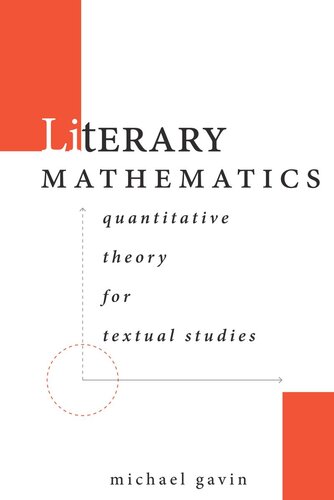

Most ebook files are in PDF format, so you can easily read them using various software such as Foxit Reader or directly on the Google Chrome browser.
Some ebook files are released by publishers in other formats such as .awz, .mobi, .epub, .fb2, etc. You may need to install specific software to read these formats on mobile/PC, such as Calibre.
Please read the tutorial at this link: https://ebookbell.com/faq
We offer FREE conversion to the popular formats you request; however, this may take some time. Therefore, right after payment, please email us, and we will try to provide the service as quickly as possible.
For some exceptional file formats or broken links (if any), please refrain from opening any disputes. Instead, email us first, and we will try to assist within a maximum of 6 hours.
EbookBell Team

5.0
60 reviewsAcross the humanities and social sciences, scholars increasingly use quantitative methods to study textual data. Considered together, this research represents an extraordinary event in the long history of textuality. More or less all at once, the corpus has emerged as a major genre of cultural and scientific knowledge. In Literary Mathematics, Michael Gavin grapples with this development, describing how quantitative methods for the study of textual data offer powerful tools for historical inquiry and sometimes unexpected perspectives on theoretical issues of concern to literary studies.
Student-friendly and accessible, the book advances this argument through case studies drawn from the Early English Books Online corpus. Gavin shows how a copublication network of printers and authors reveals an uncannily accurate picture of historical periodization; that a vector-space semantic model parses historical concepts in incredibly fine detail; and that a geospatial analysis of early modern discourse offers a surprising panoramic glimpse into the period's notion of world geography. Across these case studies, Gavin challenges readers to consider why corpus-based methods work so effectively and asks whether the successes of formal modeling ought to inspire humanists to reconsider fundamental theoretical assumptions about textuality and meaning. As Gavin reveals, by embracing the expressive power of mathematics, scholars can add new dimensions to digital humanities research and find new connections with the social sciences.